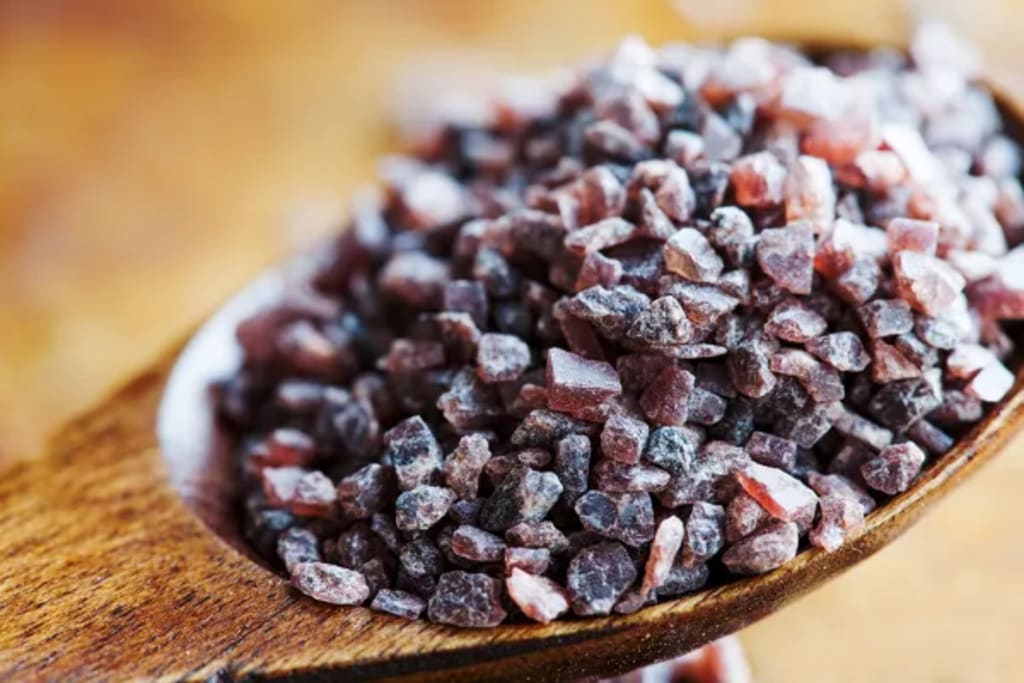Preserving Tradition: Crafting India's Black Salt, Kala Namak
Navigating Tradition and Modernity in the Production of a Culinary Gem

In the heart of Lakau, India, a centuries-old craft persists against the tides of time. Meet Kala Namak, commonly known as black salt, a staple in South Asian cuisine and a culinary treasure with a history rooted in medicinal use. However, the traditional process of making this unique salt is not without its challenges, pushing one of the last factories, Chak, to the brink of closure.
A Labor-Intensive Tradition: Crafting Black Salt by Hand
The process begins with the heating of a kiln to nearly 1,000°C, a task so perilous that workers risk burns to produce this culinary gem. The kiln, a fiery crucible, demands burning bicycle tires and hours of inhaling smoke to achieve the desired result. Chak stands as one of the last bastions of this labor-intensive method, a testament to the enduring allure of tradition.
From Clay to Kiln: Crafting the Crucial Pots
Shiv Shankar Prajapati, a skilled potter, follows age-old techniques passed down through generations to shape the pots by hand. The wooden potter's wheel, spun manually, requires precision to create the perfect vessel. Each pot undergoes careful layering, drying, and reinforcing, ensuring it can withstand the intense heat of the kiln.
The Crucial Ingredient: Raw Sambhar Salt
The magic of Kala Namak lies in its signature black color and distinct flavor, achieved through the addition of raw sambhar salt. This finely ground mixture of plants and fruits is sourced from SAR Lake, India's largest inland salt lake, over 670 km away. Pouring this ingredient into each pot requires a steady hand, as workers carefully blend it with the molten salt.
The Trial by Fire: Kiln Cooking and Unveiling the Salt
Cooking Kala Namak is an art in itself, taking a full 24 hours. The high temperatures, reaching close to 1,000°C, melt the salt and raw ingredients together, creating the final product. Breaking open the pots with hammers reveals the prized black salt, still searing hot. Workers then cover the salt with raw sambhar salt to cool it down before packaging.
Challenges and the Future: A Struggling Tradition
Despite its enduring popularity in South Asian cuisine and its recent global recognition, the traditional method of producing Kala Namak faces significant challenges. Labor shortages, unpredictable weather, and the availability of raw materials threaten the existence of Chak Black Salt Factory. The shift towards mechanization in the industry adds to the struggles faced by traditional craftsmen.
Legacy in the Global Culinary Scene
Kala Namak has transcended its roots and found a place in global cuisine. Culinary entrepreneurs like Bara Cardos, based in New Jersey, incorporate it into spice blends, introducing its unique taste to a broader audience. The growing demand for this distinctive salt has led to changes in production methods, but Chak remains a symbol of resilience in the face of modernization.
In a world that is rapidly evolving, Chak Black Salt Factory stands as a testament to the delicate balance between preserving tradition and adapting to the demands of the present. The journey of crafting Kala Namak is not just a culinary process; it is a narrative of resilience, heritage, and the timeless pursuit of flavor.
About the Creator
Enjoyed the story? Support the Creator.
Subscribe for free to receive all their stories in your feed. You could also pledge your support or give them a one-off tip, letting them know you appreciate their work.






Comments
There are no comments for this story
Be the first to respond and start the conversation.